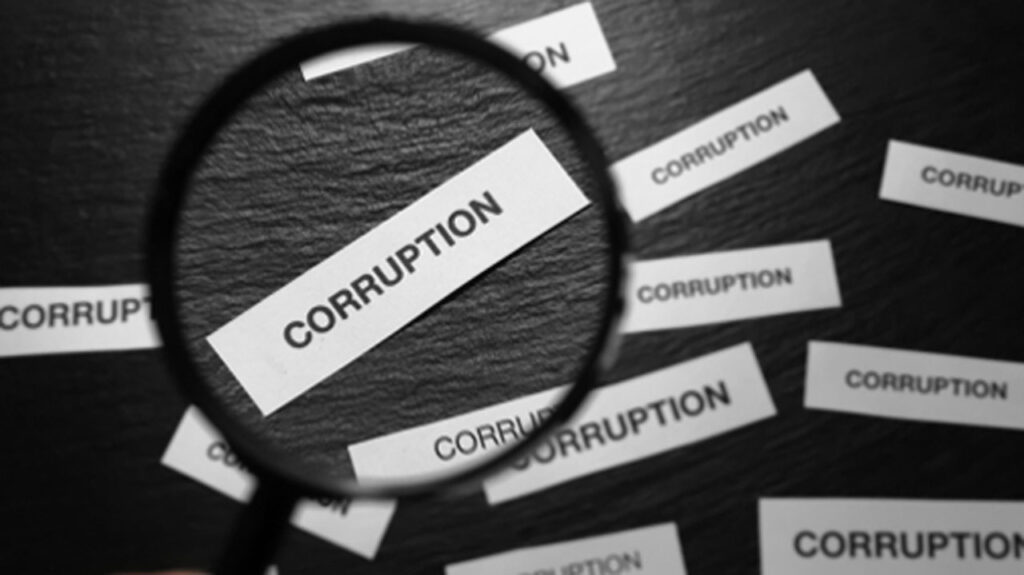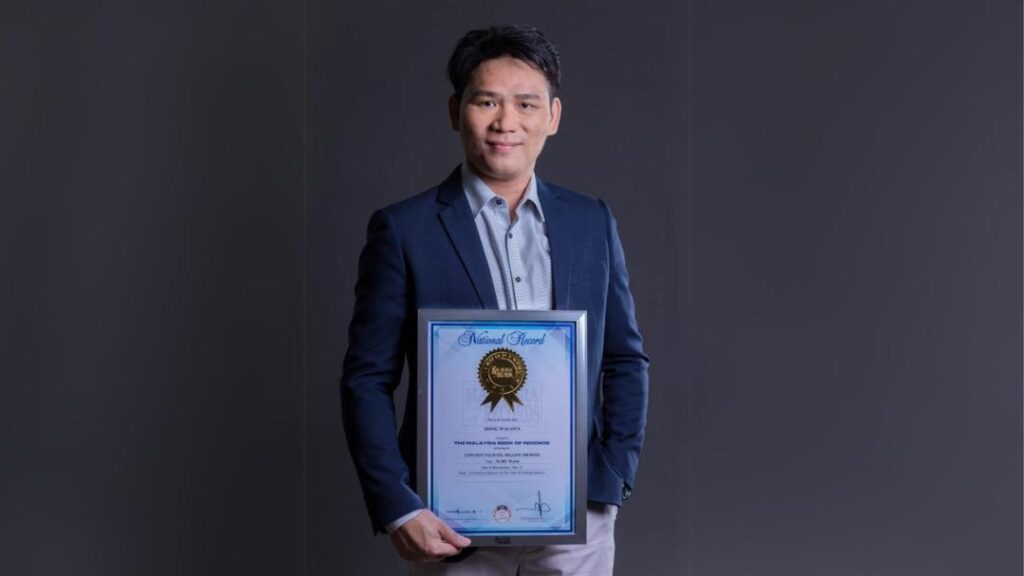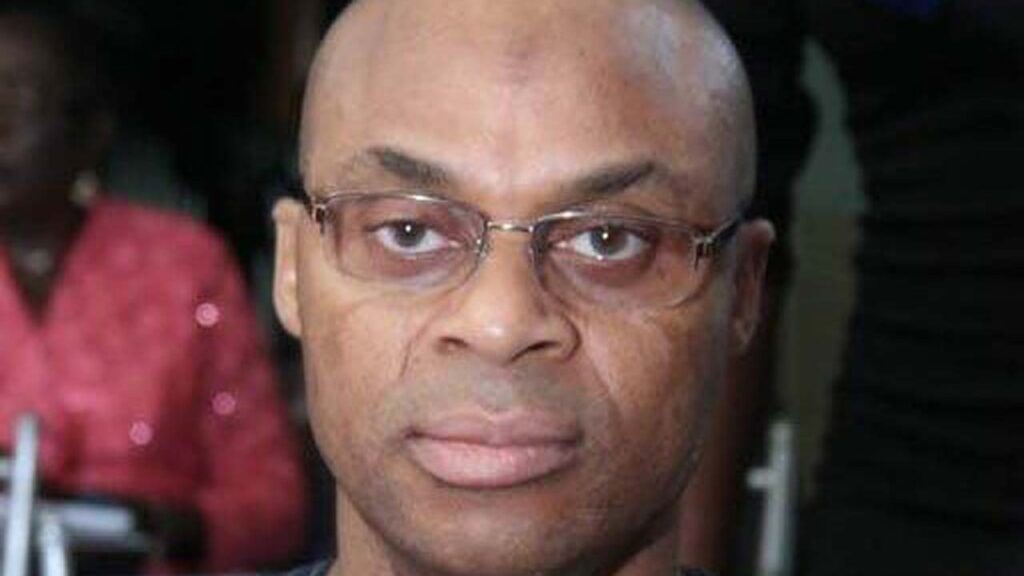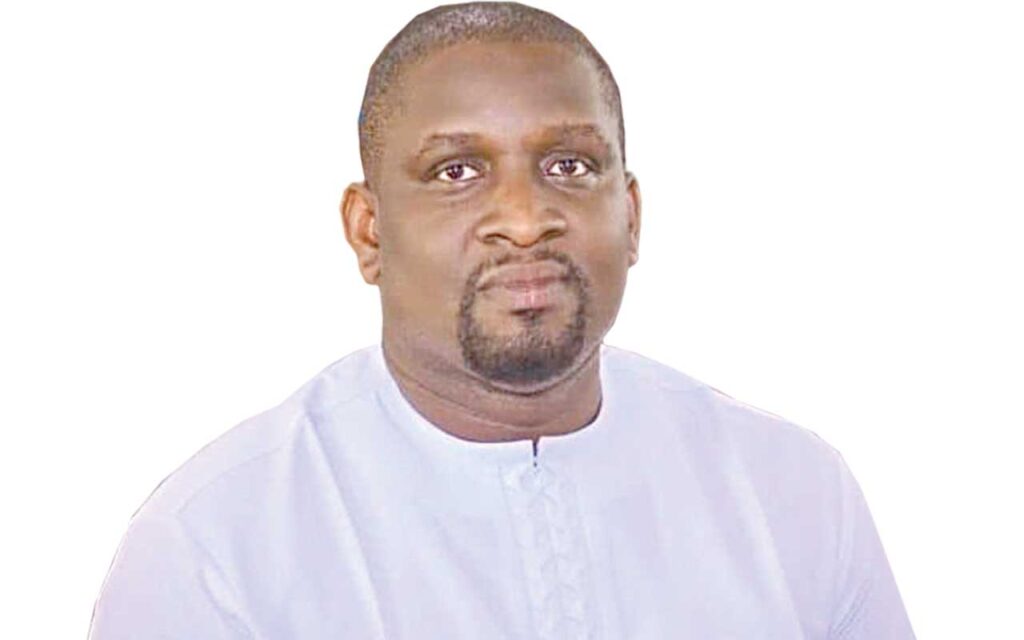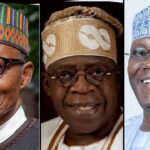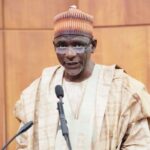
Among other things, the country’s slipshod handling of high-profile corruption cases, or the outright bungling of such cases leading to key dramatis personae being acquitted after grave charges had been preferred against them, is legendary.
Not only have these well-documented cases of judicial malfeasance let many corrupt political leaders walk away scot-free, the absence of diligent prosecution and the inherent loopholes in the country’s justice system constitute a major hindrance to a successful anti-graft war.
Expectedly, this macabre scenario has dire consequences, which include lost business opportunities, and being perennially yoked with some of the world’s most corrupt nations, as exemplified by the penultimate week’s listing of Nigeria as the second most corrupt country in West Africa.
The Corruption Perception Index (CPI) at the behest of Germany-based Transparency International (TI) in its latest ranking, also chronicled the country as scoring 24 out of 100 points and consequently, ranking 154 out of 180 countries that it surveyed.
Indeed, the country’s poor score also ensured that she tumbled five notches down from the rank of 149 in 2020. The report, which was revealed on TI’s official Twitter handle, @TranperencITng, indicated that it was Nigeria’s second consecutive year of a downward spiral on the CPI ranking. The country had earlier dropped from 26 in 2019 to 25 in the 2020 assessment, and further to 24 in the latest 2021 record.
The CPI is the tool, which Transparency International uses to measure levels of corruption inherent in countries across the globe. The maximum point a country can score is 100 points, and the least is zero, which signifies the worst performing countries and 100, the best ranked.
While the ranking is seen by many countries as an indicator that corruption in their domain has gotten worse over the years, only a few countries, including Nigeria are used to throwing tantrums and rejecting the report, especially when it is unfavourable.
For instance, while reacting to the 2021 assessment, the Federal Government rejected the ranking claiming that TI was unaware of President Muhammadu Buhari-led administration’s achievements in the fight against corruption.
Without mincing words, the Minister of Information and Culture, Lai Mohammed, stressed that the Corruption Perception Index does not reflect “the great strides by the country in its fight against corruption.”
In questioning the source of the data used for the ranking, Mohammed said: “For instance, following the release of the 2019 TI-Corruption Perception Index, the government initiated reforms to improve on Nigeria’s Ease of Doing Business indices. This is because we found that up to 40 per cent of the country’s corruption perception survey indices relate to business processes and general public service delivery processes.
“Government’s swift action has led to major reforms in the processes at our ports and business process points.” While also defending the government, the Attorney-General of the Federation (AGF), Abubakar Malami, said that the global anti-corruption body lacked the basis upon which it could rank Nigeria.
Malami, while speaking on Channels Television’s prime time programme, Politics Today, boasted that Buhari’s anti-corruption efforts had earned the plaudits of other “reputable” international organisations, including the African Union, and the United Nations Office On Drugs and Crime (UNODC).
He stressed that the ranking “does not support the empirical evidence” on institutional efforts that the government was putting in place to combat sleaze. “The major consideration that should constitute the basis for the successes of the Nigerian government as far as the fight against corruption is concerned should not be an exclusive position of the TI,” Malami noted, adding that, “when you juxtapose the UNODC position with the TI’s ranking, then places a question mark on the TI’s assessment.”
However, while defending its position, the Civil Society Legislative Advocacy Centre (CISLAC), the Transparency International Chapter of Nigeria, which exclusively presents the CPI in Nigeria, said that the CPI result did not include the assessment of anti-graft agencies. Rather, ‘it goes beyond the anti-graft agencies.’
Auwal Rafsanjani, TI’s country representative, in a statement that he issued last Tuesday, blamed the poor report on the government, adding that the score did not reflect specific instances of corruption in the country, but rather the perception of corruption.
CISLAC also blamed the country’s perennial slide on the ranking on the failure of anti-graft agencies to investigate high-profile corruption cases and prevent Illicit Financial Flows (IFFs) by anti-corruption authorities.
“While we commend the arrest of cybercriminals and call on the anti-graft agencies to do more, there is a need to investigate high-profile political cases, including those of individuals who have switched political affiliations.
“A case in point is the Pandora Papers revelations, which is one of the biggest-ever corruption leaks led by the International Consortium of Investigative Journalists (ICIJ), and over 600 journalists from 117 countries, including journalists from Nigeria.
“A close look at the Pandora Papers published in 2021 revealed that Nigeria topped the African continent when looking at the number of those exposed. Following the pattern of two previous leaks (i.e., the Paradise Papers and Panama Papers, which were released in 2016 and 2017, respectively), the Pandora Papers exposed systems and secrecy jurisdictions that enable and abate crime, corruption, and illicit dealings by politicians, billionaires, influential individuals, and their enablers globally,” he said.
Rafsanjani continued: “Since its release on October 3, 2021, Nigerians are yet to see any action or get answers from anti-graft agencies, whose work has been made easier by the diligent reporters … who highlighted stolen or suspiciously acquired assets to be investigated…”
International Honour Amid Local Odium
IN 2018, the African Union (AU) selected President Muhammadu Buhari as the 2018 Anti-Corruption Champion for its 30th AU Summit in Addis Ababa, Ethiopia. While Buhari thanked his fellow African leaders for entrusting him with such responsibility, he pledged to do his best “to ensure that the anti-corruption agenda will receive the attention it deserves and make the impact we all hope for, during 2018 and beyond.”
Back home, the Presidency expressed joy at the honour done Buhari, but the opposition People’s Democratic Party, (PDP) would not have any of such, just as it expressed deep disappointment at Buhari being “named the Continental Anti-corruption Champion for the year 2018” as he was surrounded by alleged corrupt aides, who cover up financial malfeasance and present a sterling facade.
It described the “honour” on Buhari as “laughable, derisory and eminently qualified as Africa’s joke of the year.” The party added that it was clear that leaders of the African Union were not well-briefed on happenings in Nigeria, including the heavy sleazes allegedly going on around the Buhari presidency.
Interestingly, the Kogi State Governor, Yahaya Bello, seems to agree with the position taken by the PDP three years ago, when he alleged that some lieutenants of the president were hurting his credibility.
Speaking in Gombe State at the inauguration of Governor Yahaya Bello GYB’s Rescue Nigeria Mission (RENMISS) North-East Chapter, Bello, represented by his Chief of Staff, Abdulkareem Asuku, said that some aides have, in no small means, hurt the credibility of President Buhari, “who was voted for in 2015, for his antecedents, as a military head of state. A man, who fought corruption and instilled discipline in Nigerians in the ‘80s.
“President Muhammadu Buhari is not corrupt. You may hate him, he is near being an angel. But, his aides are deceiving him. They are stealing under him. This is the reason we are here to say, enough is enough,” he said.
Be that as it may, many thought that the war against corruption would be reinvigorated even as stricter measures would be taken by the Federal Government to dislodge vestiges of corruption, which the present administration swore to exterminate if voted into power. They also believed that with the massive goodwill that it garnered in the build-up to the 2015 poll, it would not take long to rid the nation of all forms of corruption.
But that has not been the case. Instead, daily happenings suggest that game over for corruption will not be signalled by this administration, which they accuse of fighting corruption with kid gloves.
Interestingly, lawmakers that ought to play by the rules and be standard-bearers in matters of rectitude, are also caught pants down in activities that create a conducive environment for financial malfeasance to thrive.
For instance, the Auditor General of the Federation (AuGF), Adolphus Aghughu, last year, indicted the management of the National Assembly and the National Assembly Service Commission for embarking on an unexplained N9.424b expenditure in the 2019 financial year.
About N5.521b of such expenditure was credited to the House of Representatives in five different audit queries; N3.595b credited to the Senate in seven audit queries, and N307.676m credited to the National Assembly Service Commission in two audit queries.
The queries were contained in the AuGF Annual Report on Non-compliance/Internal Control Weakness Issues in Ministries, Departments and Agencies of the Federal Government of Nigeria for the Year Ended December 31, 2019.
Before the National Assembly was indicted, the Office of the Auditor-General had earlier indicted the Nigerian Security Printing and Minting Plc., the Nigeria Ports Authority, and others, for irregularities in payments/expenditures and unexecuted projects worth about N138.8b.
The details of the indictments were contained in the audit report submitted to the Senate and House of Representatives’ Committee on Public Accounts for further legislative action.
The report indicted 20 MDAs for irregular payments amounting to N132.53b, with the Nigerian Security Printing and Minting Plc. having the highest amount of N97.98b.
The report said: “The sum of N132, 525, 040, 862.97 was the amount of irregular payments/unapproved allowances to staff by 20 Ministries, Departments and Agencies.”
High-profile Corruption Cases Still In The Lurch
WHEN the first Secretary to the Government of the Federation (SGF) appointed by Buhari, Mr. Babachir Lawal, was fired over a fraudulent N500m grass-cutting contract, many had expected his prosecution to be swift to send a message, as well as to show the world how it intended to battle corruption, but over three years down the line, everyone involved in the case appears to be dilly-dallying and uninterested in bringing the matter to a befitting closure.
As of today, Lawal is not only one of the leading lights of the All Progressives Congress (APC) in Adamawa State, he is also a frontline campaigner for a Bola Ahmed Tinubu presidency come 2023.
For several months, staff members of the National Health Insurance Scheme (NHIS) were locked in a fight to finish with their then Executive Secretary, Usman Yusuf, over what they described as “questionable and unauthorised spending by Yusuf.”
It took the government several months of watching as a spectator before it finally got Yusuf out of office. The sack was based on the recommendation of a panel of enquiry, which was set up to investigate some of his activities while in office.
Yusuf was, among other things, accused by a seven-man panel of breaching the Public Procurement Act, flouting public service rules by refusing to carry out lawful instructions by superior authorities. To date, not much has been heard of the consequences of his actions.
Ibrahim Magu reigned like a powerful monarch while in office as acting chairman of the Economic and Financial Crimes Commission (EFCC). He walked with a peculiar swagger, as well as put up a mien that could scare the guilty, but he was suspended from office by Buhari after Malami accused him of corruption and abuse of office, allegations that he denied vehemently
While in office from 2015 to 2020, his confirmation by the Senate was rejected twice, and he was later suspended alongside several others in July 2020. Thereafter, he was probed for over three months by a judicial panel of inquiry led by a former President of the Court of Appeal, Justice Ayo Salami. The panel submitted several recommendations in its report to Buhari, but all those have not been made public. To date, Magu is still receiving pay as a police officer and his fate is undecided.
One of the surest pointers to the fact that eliminating corruption from our body polity may still be eons away, is how the political class has been consistent in frittering away the nation’s resources. On its part, the public service has also succeeded in making billionaires of those who steal either pension funds or other such monies meant for life-saving projects entrusted into their care.
In the last couple of years, some rogue operatives of the military and para-military services have left no one in doubt about their capacity to be rapacious and effectively compete with their civilian counterparts in plundering the nation’s resources.
Two horrendous examples coming to light almost simultaneously, last week, lend credence to the deep-rooted nature of the malaise in the military, and the paramilitary services. They are the arrest of a Deputy Commissioner of Police (DCP), Abba Kyari, over his alleged membership of an international drug syndicate. Until his arrest, Kyari’s links with an Internet fraudster, Abbas Ramon better known as Hushpuppi was being investigated by the NPF.
The other incident that equally showed the thriving nature of corruption in the Armed Forces, was the final forfeiture of property worth N11b from a military officer, who had specialised in acquiring unexplained wealth.
Judiciary As The Fall Guy
IN January 2016 in faraway Addis Ababa, during a town hall meeting with Nigerians living in Ethiopia, Buhari said that he was ready to go all out against corruption, but “the judiciary remains “my main headache for now.”
He pledged that his regime would see to “far-reaching reforms in the judiciary.” Last week, Malami re-echoed the sentiment when he absolved the government of being sloppy in handling high-profile corruption cases. He, like his principal, deposited the blame on the doorstep of the judiciary.
A public health physician, Dr. Obinna Ebirim, also believes that the slow pace of litigation in corruption cases equally lends credence to the judiciary being a clog rather than a let in the wheel of justice.
He said: “The attorney general is not wrong. But, I am trained as a young leader to know that the buck stops at the leader’s table. So, the leader must take responsibility and solve problems rather than blame the judiciary. We need judicial reforms and the time to start is now. Also, there is a need for greater political will and a top-bottom approach in holding corrupt people to account. We see a lot of pictures of Internet fraudsters arrested by the EFCC. While this is commendable, we need to see more pictures of politicians that are also caught by the EFCC. As a people, we should also avoid corruption in our little spaces to help us win this war against corruption.”
While describing as worrisome the failure of the anti-graft agencies to investigate high-profile corruption cases, and prevent Illicit Financial Flows (IFFs), Ebirim, a Fellow of the Mandela Washington Fellowship for Young African Leaders, and Co-Founder of Impact Driven Young Leaders (IDYL) Initiative, stressed that “efforts should be made to address it.
“In addressing this, there is a need for reforms of our law enforcement agencies and the judiciary to strengthen their capacity to investigate cases properly with integrity and be empowered to rule on corrupt cases correctly without being held back by manipulation of the existent laws by rich corrupt persons respectively. It is a known phenomenon that corrupt people are emboldened to continue their evil practices once they have stolen enough to hire senior lawyers to defend them and bribe law enforcement agencies thereby frustrating government efforts to hold them to account.”
For Mbasekei Martin Obono, a legal practitioner, “When Buhari came into power, the phrase, body language was popularised due to, either his lack of communication or action when he is expected to act. It is that same body language that the judiciary and every other arm of government is following in terms of being docile. If the president is serious about fighting corruption, it will trickle down at all levels.”
He, however, added that “the Administration of Criminal Justice Act (ACJA) 2015 has made provisions that ought to speed up criminal trials. It is one of the best pieces of legislation for the criminal justice system in Nigeria. If the Act is followed to the letter, there will be speedy trials of corruption cases in Nigeria.”
Obono, a principal partner at Tap Legal Services, and the Team Lead of Tap iNitiative, noted that it is “really sad to see the politicisation of anti-corruption war in Nigeria. The failure of anti-corruption agencies to investigate and prosecute high-profile cases is due to their affiliation with either the ruling party or the president. Imagine that to date, no one has prosecuted the man in whose house was found a bullion van stashed with money amid an election simply because he is a national leader of the ruling party and a close ally of the president. This is sad and it shows that we are not a serious country when it comes to our anti-corruption fight.”
But while bemoaning the impact that current happenings in the country would have on the country’s ranking next year, Ebirim the Co-founder of Impact Driven Young Leaders (IDYL) Initiative, who aspired to represent the people of Mbaitolu/Ikeduru Federal Constituency in the last general elections said: “It is disgraceful and disappointing that DCP Abba Kyari got involved in such dirty dealings. This is a cop I had so much respect for in the past for his supposed role in fighting criminality just to be heartbroken by these alleged associations with criminality and other heinous actions. This latest finding has also fuelled a trending perception that this was to prevent his extradition. All these will further rub off on our effort to fight corruption and subsequent CPI-TI ranking… Let’s strengthen our systems and enforce our laws or enact where there are legal gaps to win this war against corruption that is fighting back.
Continuous Decline Indicative Of Thriving Corruption Or Ineffective Strategy
WITHOUT doubt, Obono, a visiting scholar at Columbia University, New York, United States said the country’s continuous decline on TI’s CPI perception index buttresses the fact that this administration has always paid lip service to the anti-corruption war without necessary action. “There is still pervasive corruption in the civil service, extortion, especially in the Nigerian Police Force with little or no efforts to prosecute or punish culprits as a deterrent. The presidency also reeks of corruption, the same way as government houses in states and their legislative houses. These are the reasons that we are on a decline and if people don’t pay for the wrongdoings, we will continue to see a decline in the global ranking… But if one of NPF’ finest can be that corrupt, how much more the ordinary policeman? Therefore, Kyari’s embarrassing fall will impact negatively the country’s image and perception as an unserious and lawless country. It’s a big shame.”
On his part, Ebirim said that the country’s continuous slide “is a call to action for us to do more in the fight against corruption. Yes, the fight against corruption is ongoing and corruption is fighting back, but leadership should birth positive change rather than complaints. So, we must find a way to defeat the fight back and win this war against corruption. It is my opinion that rather than focusing solely on chasing criminals and thereafter, naming and shaming them, we should, in addition, focus on strengthening our systems and be firm in enforcing related systemic laws such that it is difficult or impossible for corrupt practices to be carried out in the first place. Technology and automation have key roles to play. Also, we must enact and enforce laws that make it less attractive to be corrupt like laws that limit election spending, laws that prohibit public spraying of money, laws that prevent the use of exotic cars, or phones by undergraduates as well as laws that empower law enforcement agencies to investigate show of affluence that does not correlate with age, or nature of work. We need values reorientation because corruption is so endemic that some parents now encourage their children to get involved in Internet fraud; religious houses celebrate and collect from known corrupt persons without questioning their sources of wealth etc.

